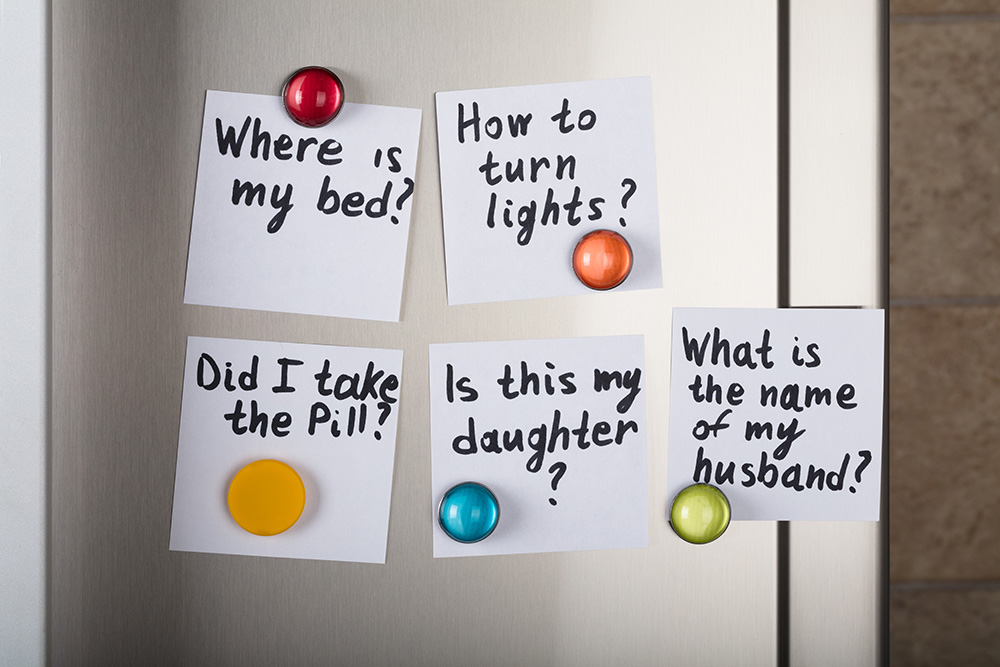Hearing Loss and Dementia
Understanding the Connection Between Hearing Loss and Dementia
How do we hear? Our ears gather soundwaves. The middle ear turns those soundwaves into vibrations, and those vibrations are sent to the cochlea. We have very tiny hair cells that move inside the cochlea and send electrical impulses to the brain. Our brain interprets these electrical signals as sound.
Given the role the brain plays in hearing, it makes perfect sense that hearing loss might be connected to impaired brain function—and that is exactly what research has found.
The brain keeps very busy and is constantly working. Untreated hearing loss requires a huge amount of listening effort. This can be taxing on our system. “Cognitive load” is the amount of resources (brain power) in order to complete all bodily functions. In the case of hearing loss, the brain needs more resources in order to decipher specific sounds. People with untreated hearing loss strain to receive information and in turn, are exhausted by the end of the day.
Mustering the brain power needed to decode unclear sound may divert brain resources away from other functions such as working memory.1It is also suspected that straining to hear may eventually overwhelm the brain opening the door to dementia.
The statistics researchers have published are compelling:
- Hearing loss is associated with a 30–40% faster rate of cognitive decline, compared to normal hearing.2
- Even individuals with mild hearing loss have a two-fold increase in the risk of dementia. The increase for moderate and severe hearing loss is 3-fold and 5-fold, respectively.3
Other studies have connected cognitive decline and dementia to social isolation. 4,5,6Since untreated hearing loss can lead to social isolation, treating hearing loss and increasing human interaction seems like a better way of preventing dementia.
Time for good news! Data also suggests that hearing aids can reduce social isolation and lessen “brain strain” by getting clearer information to the brain. Hearing rehabilitation therapy is also showing promise in both lessening cognitive load and encouraging social interaction.7
If you’re concerned for yourself or a loved one regarding the relationship between hearing loss and dementia please call us for an appointment. We’ll be happy to assess your situation and recommend an appropriate course of action.

2 Lin, F. R., Yaffe, K., Xia, J., Xue, Q. L., Harris, T. B., Purchase-Helzner, E., Satterfield, S., Ayonayon, H. N., Ferrucci, L., Simonsick, E. M., Health ABC Study Group (2013). Hearing loss and cognitive decline in older adults. JAMA internal medicine, 173, 293-9.
3 Lin, F. R., Metter, E. J., O’Brien, R. J., Resnick, S. M., Zonderman, A. B., & Ferrucci, L. (2011). Hearing loss and incident dementia. Archives of neurology, 68, 214-20.
4 Fratiglioni, L., Wang, H. X., Ericsson, K., Maytan, M., & Winblad, B. (2000). Influence of social network on occurrence of dementia: a community-based longitudinal study. The lancet,355, 1315-1319.
5 Barnes, L. L., De Leon, C. M., Wilson, R. S., Bienias, J. L., & Evans, D. A. (2004). Social resources and cognitive decline in a population of older African Americans and whites. Neurology,63, 2322-2326.
6 Bennett, D. A., Schneider, J. A., Tang, Y., Arnold, S. E., & Wilson, R. S. (2006). The effect of social networks on the relation between Alzheimer’s disease pathology and level of cognitive function in old people: a longitudinal cohort study. The Lancet Neurology, 5, 406-412.
7 Sarampalis, A., Kalluri, S., Edwards, B., & Hafter, E. (2009). Objective measures of listening effort: Effects of background noise and noise reduction. Journal of Speech, Language, and Hearing Research, 52, 1230-1240.
